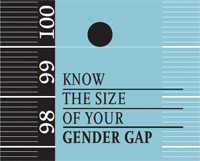Social Watch news
Published on Thu, 2012-03-15 13:45
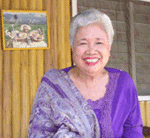
Leonor Briones
|
The impact of typhoons, earthquakes, climate change and other external factors make it difficult for the Philippines to reach its economic growth targets of 5 percent to 6 percent this year and 6 percent to 7 percent next year, warned Social Watch Philippines this week.
|
Published on Thu, 2012-03-15 13:43

Photo: MME
|
The Mediterranean Migration Network (MMN) was officially launched during a two-day kick-off meeting in Nicosia, on March 1-2. The meeting was organized by the MMN coordinator, the research and development centre CARDET, focal point of Social Watch in Cyprus.
|
Published on Wed, 2012-03-14 09:28
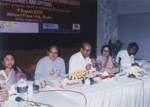
Atiur Rahman (Social Watch),
Manzoor Ahmed (Education Watch),
Rasheda K Choudhury (Peoples'
Forum on MDG), and Arifur Rahman
(Manusher Jonno).
(Photo: The Daily Star)
|
The centralization in Dhaka, the capital city of Bangladesh, is responsible for the unsustainable development of that South Asian country, according to the Social Watch Report 2012. The historical absence of long-term planning and overpopulation are the main cause of environmental degradation and resource depletion, said Rezaul Karim Chowdhury, executive director of Coastal Association for Social Transformation (COAST Trust) while launching the study.
The report, based on 670 reports of 66 nations, said in its Bangladesh part that centralisation has accentuated geographical imbalance in income in the country.
|
Published on Tue, 2012-03-13 06:38
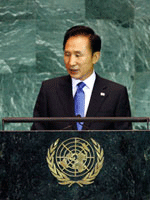
President Lee Myung-bak.
(Photo: Marco Castro/United Nations)
|
The Citizen’s Coalition for Economic Justice (CCEJ), focal point of Social Watch in the Republic of Korea, gave failing grades on the President Lee Myung-bak's performance during its time in power. The organization concluded that only 39.48% of Lee's 100 major governance tasks were executed. The administration scored a D+ grade for satisfaction with the results of those, reported journalist Jung Hwang-bong for The Hankyoreh daily newspaper.
|
Published on Mon, 2012-03-12 08:43

Corporate income tax rate in
Canada: 1926-2010.
(Source: The Globe and Mail)
|
“In Canada, federal taxes on profits had fallen to 16.6 per cent by fiscal 2010-11 after briefly dipping to 13.2 per cent in 2008, a level not seen since the Great Depression,” wile corporate profits “have rebounded since the 2008-9 crisis, nearing the previous high water mark,” wrote Armine Yalnizyan, senior economist at the Canadian Centre for Policy Alternatives (CCPA), one of the focal points of Social Watch in the North American country.
|
Published on Thu, 2012-03-08 13:26
■ Mongolia narrowed the gap putting legislation into force
■ Brazil reached a low score in political empowerment, although the president is a woman
■ Social Watch Italy: “The economic crisis could represent an opportunity to change”
The achievements made by women all over the world towards equity in education are still very far from making an impact on their having a fair share in the economy or in political power. This can be concluded from the updated figures of the Gender Equity Index (GEI) 2012, published by Social Watch on the eve of International Women’s Day, March 8. None of the 154 countries considered in the study has narrowed the gender gap to an “acceptable” level.
|
Published on Thu, 2012-03-08 13:21

Egyptian women in Tahrir Square,
Cairo, on January 2011.
(Photo: monasosh/Flickr/CC)
|
On the occasion of International Women’s Day, the International Federation of Human Rights (FIDH) and 14 citizens’ organizations of the Arab world, among them several members of Social Watch, called upon national governments and parliaments to implement 20 measures to establish the equality between women and men.
|
Published on Tue, 2012-03-06 11:22
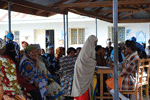
Women's health clinic in
Tanzania.
(Photo: advencap/Flickr/CC)
|
The Southern African Human Rights NGO Network (SAHRINGON) Tanzania Chapter, national focal point of Social Watch, has urged the government to amend or repeal all discriminatory laws based on gender for the country to achieve the equality between men and women provided by the Millennium Development Goals (MDGs), reported Tanzanian newspaper The Guardian.
|
Published on Mon, 2012-03-05 12:46
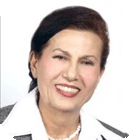
Svetlana A. Aslanyan
|
Armenian legislation supports women’s rights, but the laws often clashes with daily habits. The non governmental Center for the Development of Civil Society (CDCS), presided by Svetlana A. Aslanyan, launched some years ago the program “Empowering young women in rural areas”, that included seminars on human rights, gender equality, leadership as well as training courses and publication of materials and books. The aim was to increase the role of rural women in the decision making processes at both local and national levels. The seminars have helped young women to discover their abilities and to be active participants in civil society.
|
Published on Mon, 2012-03-05 08:14

Photos of missing and murdered
aboriginal women lent a somber
presence to the three-day
Assembly in Vancouver. (Photo:
Viveca Ellis/The Epoch Times)
|
With the Missing Women’s Inquiry ongoing in Vancouver, a Canadian national forum aimed at improving the security and safety of First Nations communities couldn’t have come at a more opportune time last month, wrote journalist Viveca Ellis on an article published by The Epoch Times international media network.
|

|






